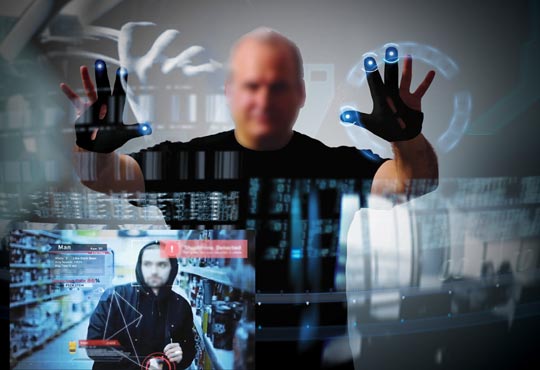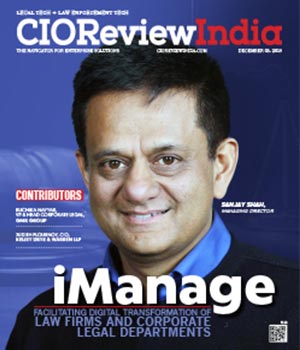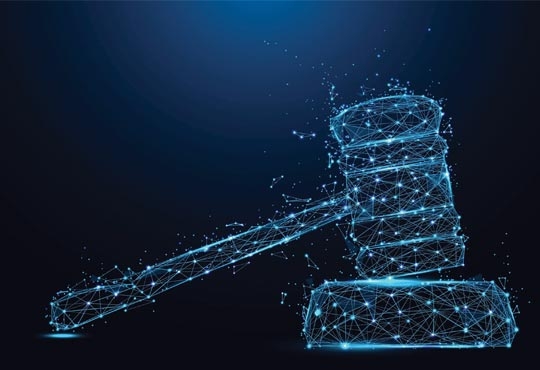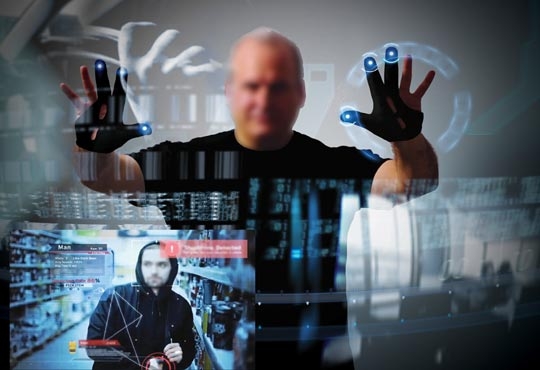
Smart Innovation Trends Transforming The Future Of Law Enforcement
Ruchika Nayyar, VP & Head Corporate Legal, GMR Group | Thursday, 05 December 2019, 04:11 IST
 Every aspect of human life has benefited immensely from the rapid advances in the field of technology - specifically growth in internet, mobile and cloud technologies. New technologies, new methods, and new ideas have brought significant changes to legal profession. The changes in the legal market have opened doors to the development and adoption of legal technologies that allow legal-service providers to enhance productivity, offer innovative digital products (e.g., cybercrime consultation, contract management, due diligence), improve legal-service delivery and quality while keeping costs at a low level. With the advancement of Artificial Intelligence (AI), there is a new branch of law evolving i.e. AI law. Now law has to not only look at the affairs of humans but also at the affairs of the machines and solve the new kinds of problems arising out of it.
Every aspect of human life has benefited immensely from the rapid advances in the field of technology - specifically growth in internet, mobile and cloud technologies. New technologies, new methods, and new ideas have brought significant changes to legal profession. The changes in the legal market have opened doors to the development and adoption of legal technologies that allow legal-service providers to enhance productivity, offer innovative digital products (e.g., cybercrime consultation, contract management, due diligence), improve legal-service delivery and quality while keeping costs at a low level. With the advancement of Artificial Intelligence (AI), there is a new branch of law evolving i.e. AI law. Now law has to not only look at the affairs of humans but also at the affairs of the machines and solve the new kinds of problems arising out of it.
The theories of law are based on equity, good conscience and justice. However, the words of J. Lord Denning, ‘the English language is not an instrument of mathematical precision’ should be noted. Due to this imperfection, legal loopholes remain wide open. With colorable interpretation devoid of legal principles, society remains exposed to grave financial crimes, disgorging massive public wealth, playing ‘catch me if you can’ with law enforcement agencies, among others.
“Artificial Intelligence cannot replace the lawyers as advocacy is a matter of emotions and human empathy, however technology can augment lawyers’ capabilities and make the work of lawyers more efficient”
As technology is used to commit more sophisticated crimes, law enforcement officers and those in the legal system are increasingly using tech tools to combat crime. To keep the public safe and protect human life, it's important that the criminal justice industry use cutting-edge software, tracking systems, and more.
Last year, the New Devises Group of Intel (a semiconductor manufacturer), teased the public with Vaunt - a smart glass embedded with gesture based artificial intelligence (AI). To much fanfare, sections of the media reported the tech to be picked right out of the Steven Spielberg’s cyberpunk fiction thriller – Minority Report, showcasing its gesture based interface used by the lead character, Tom Cruise. With 6 predictions from the movie arguably coming true over the last 15 years, it is much to one’s imagination on how far AI can take the human race. The protagonist in the movie, a law enforcement agent, realizes the personal cost inflicted by the flaws in such law enforcement technology. Therefore, the question remains: AI at what cost? Over dependencies on robots, and tools based on artificial intelligence and machine learning, could result into unforeseen consequences - as some of these tools would use “Unsupervised Machine Leaning” and can come up with bias, resulting in multiple moral or ethical issues.
The twin financial market regulators, Securities and Exchange Board of India (SEBI) and Reserve Bank of India (RBI) have quite a contrasting mechanism to law enforcement. While for the securities market, the function of rule-making and administration of rules are separated from the judicial function, the other financial markets predominately rely on RBI as the rule maker, enforcement agency and quasijudicial body. Effective functioning of the financial markets is theoretically premised on a strong friction between these three functions, outputting better laws, smarter enforcement mechanisms and quicker/precise orders - law enforcement being at the heart of them. SEBI while participating in a panel discussion on “Technology in Financial Services” at Singapore in November, 2019 mentioned that “newly emerging technologies like Artificial Intelligence (AI) machine learning (ML), deep learning, etc., are being used in Indian capital markets in areas like Robo advisory services, surveillance through social media analytics, IT security, etc.”
Bots, Blockchain and AI (BBAI as we will call it) is an instrument to track and report mischief by enabling early detention by regulators seeking to sandbox loopholes before vulgar sums of wealth are disgorged. Intel’s Pohoiki Beach, a 64-Chip Neuromorphic System, has been reported to deliver breakthrough results in research tests. It is not afar that breakthrough semiconductors will provide the computing power that BBAI command for live data processing, if not already existing.
However, the path for smarter law enforcement is riddled with the loopholes as the trigonometry of the English language. BBAI may not be able to tell the difference between data protection, privacy protection and personal data protection laws and the frameworks each of them present. As of today BBAI is potentially in breach privacy of the protection law, left right and center. The ‘whatsapp-pegasus’ fiasco has thrown open the “privacy protection versus state surveillance” debate. A data-basing technology giant has dragged a law enforcement technology provider to the doors of another law enforcement agency.
This is just the beginning. The implementation of AI technology may reach new heights in the legal sector. AI is also aimed at predicting the possible outcome of litigation to help the lawyer in providing an adequate solution to their clients. Law is ever changing, but so is technology. The role of legal technology is in assisting the lawyers and law enforcing agencies. At times, it has been debated that someday AI technology might replace a lawyer. However in my view, Artificial Intelligence cannot replace the lawyers as advocacy is a matter of emotions and human empathy, however technology can augment lawyers’ capabilities and make the work of lawyers more efficient.
CIO Viewpoint
RPA: A Shift From Monotony To Thinking
By Aniruddha Mehta, AGM QA IT, Alembic Pharmaceuticals Limited
Open Banking Solutions to drive business value...
By Vishal Sinha, President and CIO, Tranzlease Holdings (I) Pvt. Ltd
Upgrading Financial Services with Aneffective SDLC
By Nafees Ahmed, CIO, Indiabulls
CXO Insights
Future Of Legal - A Transformation Journey
By Archana Sasan, VP - Legal Counsel, Dell
By Dipendar Singh, Head - Information Technology, H&M
Smart Innovation Trends Transforming The Future...




.jpg)



